Children's glasses
Visual dysfunction tends to be unnoticed
Children cannot explain their condition well. Therefore, it is important for adults to observe children's behavior on a daily basis and to notice SOS that appears in their gestures and actions. Visual dysfunction (not visual acuity), which is often overlooked because it is not well known in Japan, is one of them.

The following symptoms may be caused by abnormal visual function, so if your child has any symptoms, we recommend that you have your child checked for binocular vision abnormalities.
*In the case of children, since they may be distracted and this may interfere with the test results, please make an appointment and come with the child and one parent or guardian.
In school or during classes
| ✓ | Has no intellectual problems, but his/her academic ability is low compared to others (cannot keep up in class) |
|---|---|
| ✓ | Have difficulty in reading and writing |
| ✓ | Can't concentrate on studies |
| ✓ | Restless and unable to sit still (walking around in class, yelling, etc.) |
| ✓ | Bad handwriting. Can’t write straight |
| ✓ | Can't draw simple shapes well |
| ✓ | Difficulty with detailed work such as arts and crafts, scissors, etc. |
| ✓ | When coloring, runs very far outside of the set frame |
| ✓ | Have been diagnosed with learning disability (LD), ADHD, and/or dyslexia |
Before and after wearing eyeglasses made after eye examination at our store
Client A: Writing in the notebook
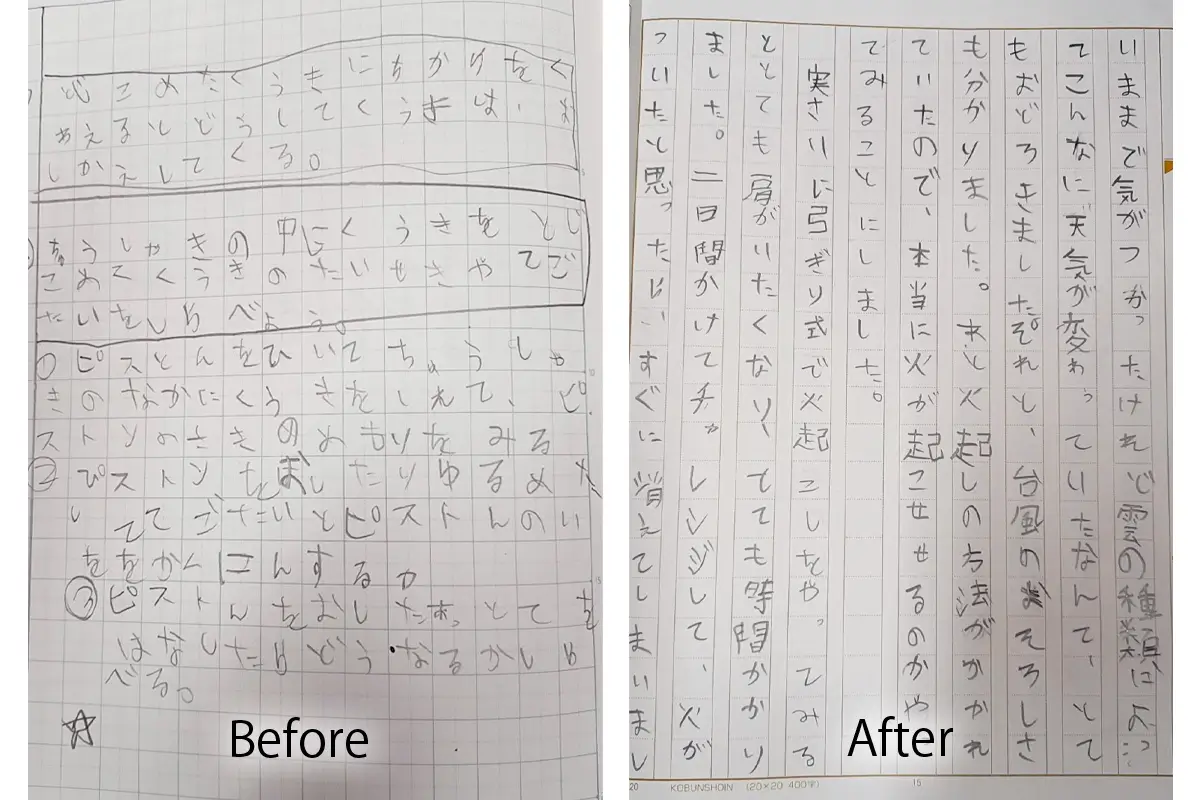
Client B: Tracing the red letters with a pencil
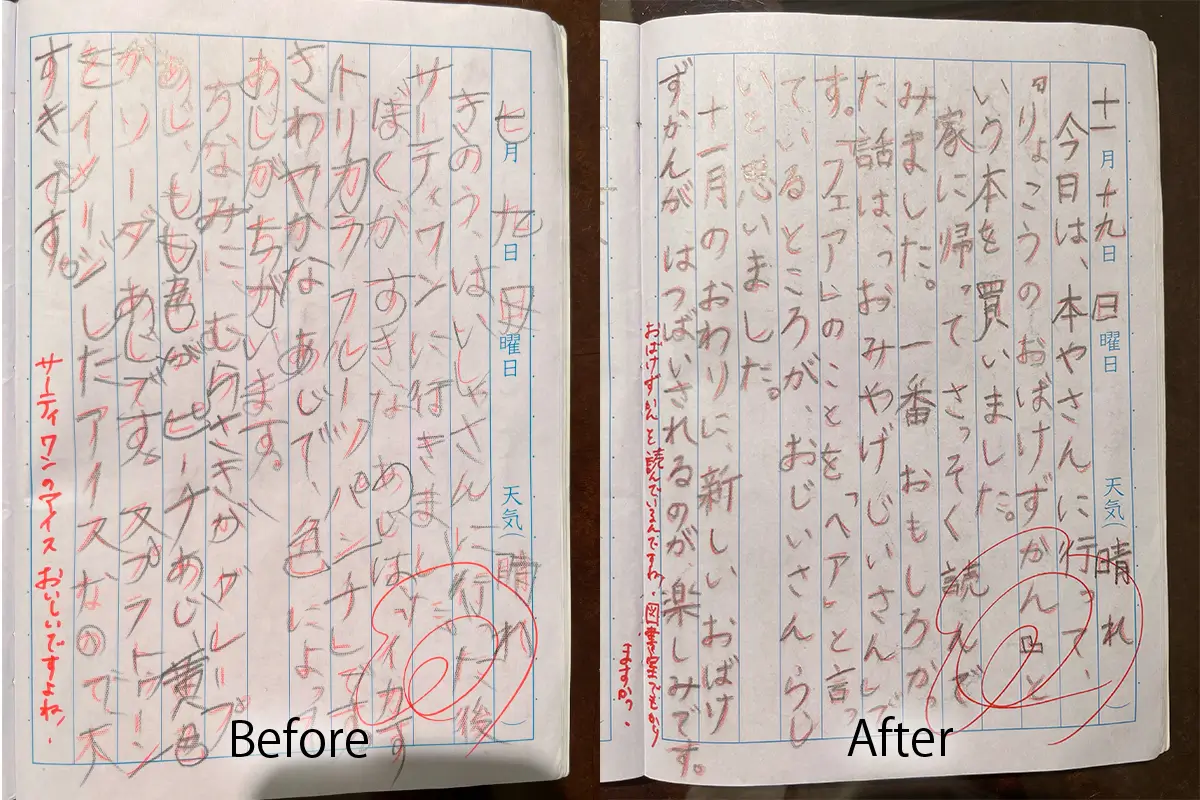
Client C: Kanji (Chinese character) test
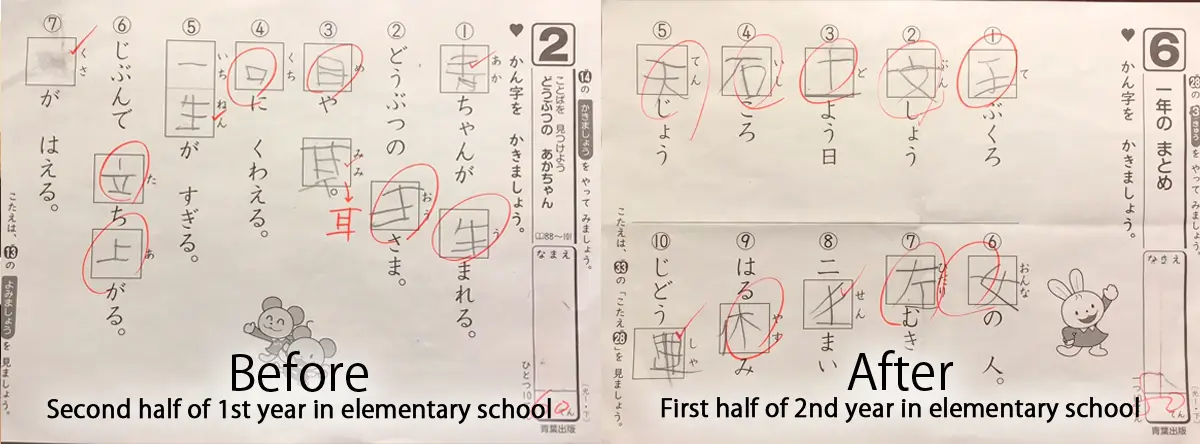
Client D: Drawing the same shape as in the sample by connecting the dots
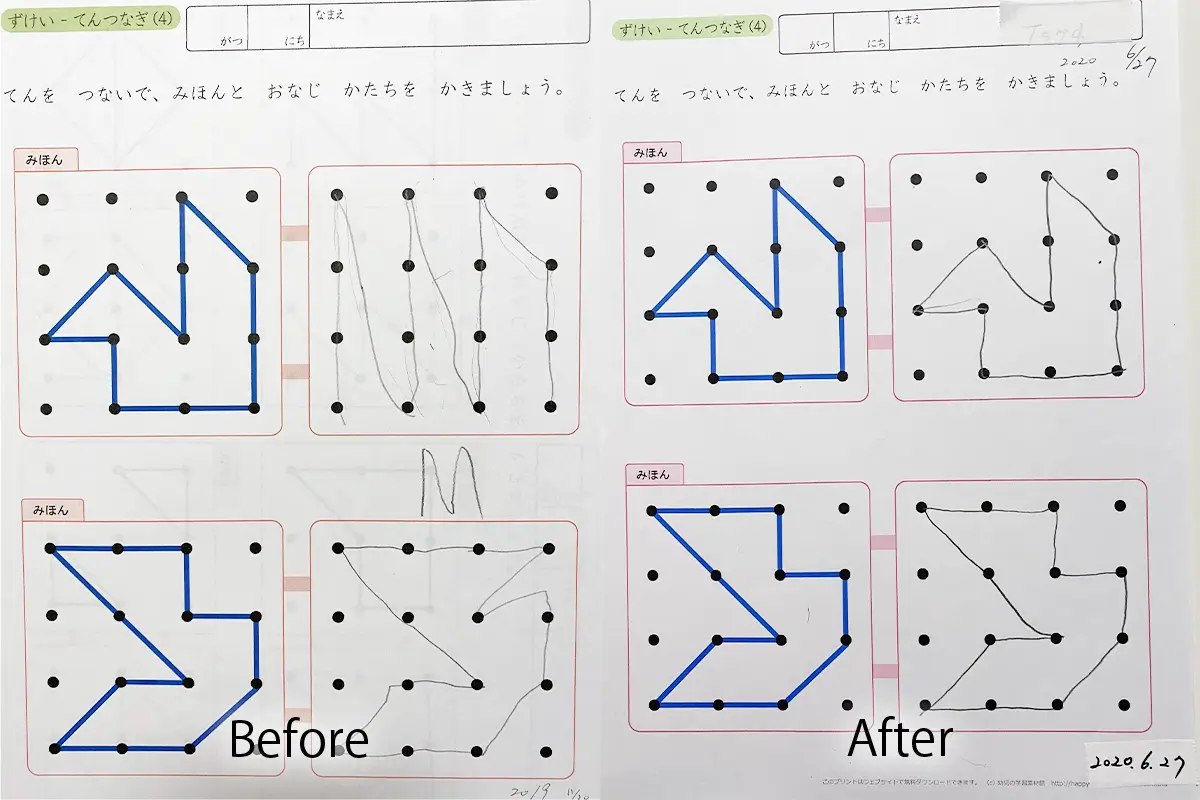
Exercise
| ✓ | Very bad at ball games ・Can't catch the ball in dodgeball ・Difficulty in kicking and hitting the soccer ball ・Can't head while playing soccer/football ・Can't hit the ball with the bat at all ・Can't catch a fly ball (the ball goes backwards) |
|---|---|
| ✓ | Lacks sense of balance ・Can't walk well on the balance beam ・Cannot stand on one leg at all ・Can't jump rope |
In everyday life
| ✓ | His/ her body and neck are always tilted |
|---|---|
| ✓ | Frequently trips or falls on stairs |
| ✓ | Frequently bumps into people and objects |
| ✓ | Very distractible |
| ✓ | Can't concentrate on anything, can't continue doing things |
| ✓ | Severe shoulder stiffness despite being a child |
| ✓ | Get dizzy often and sometimes falls down suddenly, but no abnormality was found after medical check |
| ✓ | Chronic (unexplained) headaches, migraines |
| ✓ | Abnormal wear on one sole |
| ✓ | Have bad squints occasionally |
Before and after wearing eyeglasses made after eye examination at our store
Client E: How shoe soles have been worn out
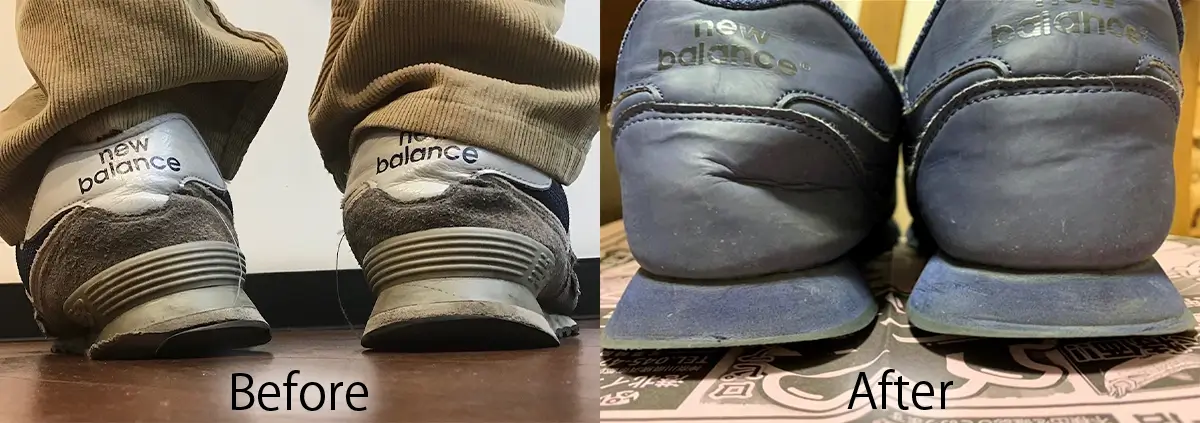
Safe and secure children's glasses
We always have more than 100 children's glasses with fun design as well as materials with excellent functionality.
Causal relationship between binocular visual dysfunction,
academic achievement, and behavioral problems
Binocular vision is not visual acuity.
Binocular vision does not depend on visual acuity (whether or not you can see clearly), but how the visual field of the brain processes what you see with your left and right eyes. In other words, binocular vision is a question of not only visual acuity, but also the "quality" of the vision. Normally, two pieces of information (images) obtained from the left and right eyes are recognized as one piece of information (image) without any problems in the visual field. However, with binocular vision dysfunction, information (images) cannot be processed well, and two pieces of information exist separately in the head, resulting in information overload. Due to the constant overload of information, it causes a decrease in concentration, a corresponding decrease in academic ability, a decrease in athletic ability, and problematic behavior.
First of all, it is necessary to understand that: binocular vision function (visual function) ≠ visual acuity.
Visual acuity is scaled as 1.2 or 1.0, and is an indicator of whether or not objects can be seen clearly.
Visual acuity is measured one eye at a time, and it is important whether the left and right eyes can see clearly, regardless of their "quality".
On the other hand, binocular vision is not about visual acuity (whether or not you can see clearly), but how the visual field of the brain processes what you see with your left and right eyes.
In other words, binocular vision is not only a matter of visual acuity, but also the "quality" of that vision.
There have been reports of cases diagnosed with learning disabilities (LD), developmental disorders, and ADHD (attention deficit hyperactivity disorder) because there is no abnormality in the body or brain.
Of course, not all problems are necessarily caused by abnormal binocular vision. However, as long as we cannot rule out the possibility that abnormal binocular vision is the cause, it is important to have an examination.
● Abnormal binocular vision is not a disease, but if it is overlooked, it can affect the child's growth, including a loss of self-esteem.
The binocular vision test is a very advanced test, so it must be done accurately. Since it is not possible to learn accurate inspection method in Japan, we recommend inspections by specialists who are nationally certified in Germany.
If you would like to have your binocular vision tested at our store, please check the FAQs and make a reservation.
FAQs


株式会社tobiraco様より子供のメガネについてインタビューを受けました。
Read MoreVisits to the Doitsu Meister Gankyouin are by reservation only.
Please refrain from calling as it will interfere with the eye examination process.
Doitsu Meister Gankyouin
Address : 2-12-27 Kita-Aoyama, Minato-ku, Tokyo, 107-0061, JAPAN
Open : 11:00〜19:00
Closed on Monday(in the case of a holiday the next day).
- Home
- About us
- Reservation / Contact
- Privacy Policy


